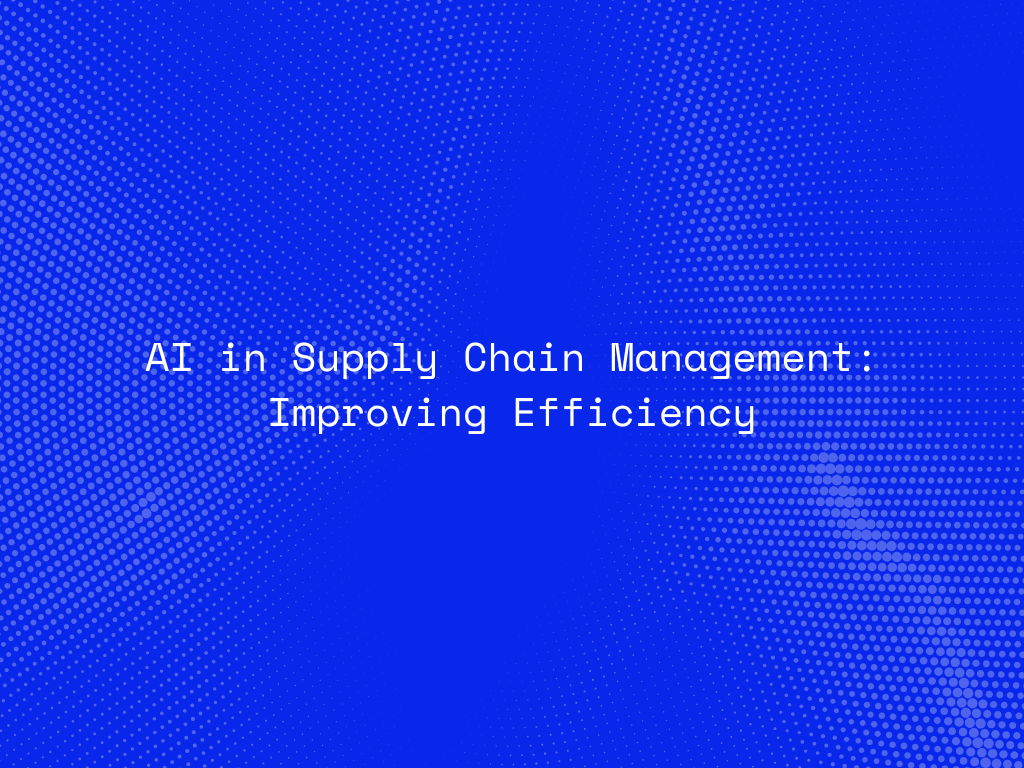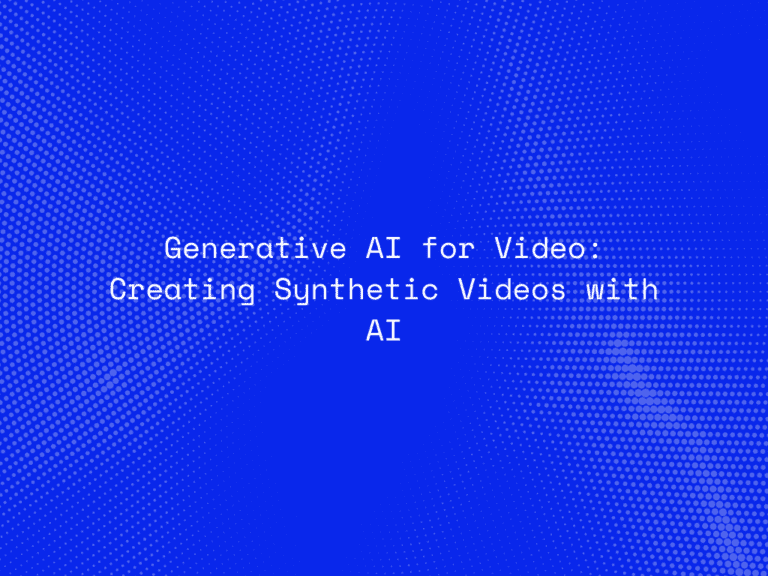The world of supply chain management (SCM) is undergoing a seismic shift, driven by technological advancements. Once plagued by inefficiencies, delays, and disruptions, supply chains today are becoming smarter and more agile thanks to the integration of Artificial Intelligence (AI).
From forecasting demand with precision to optimizing logistics and mitigating risks, AI is revolutionizing every aspect of SCM. This blog dives deep into how AI is enhancing supply chain efficiency, the tangible benefits it offers, and the transformative potential it holds for the future.
The Pressing Challenges of Traditional Supply Chains
Modern supply chains operate in a volatile environment, influenced by:
- Unpredictable Demand Fluctuations: Sudden spikes or drops in demand often lead to overstocking or shortages.
- Global Disruptions: Events like pandemics, geopolitical tensions, and extreme weather disrupt operations.
- Operational Inefficiencies: Manual processes and siloed systems create bottlenecks and delays.
- Lack of Real-Time Visibility: Inability to monitor the supply chain end-to-end hampers proactive decision-making.
These challenges highlight the need for a robust, data-driven approach—one that AI is uniquely positioned to deliver.
AI’s Role in Redefining Supply Chain Management
AI technologies are unlocking new possibilities in SCM by enabling data-driven decision-making, process automation, and real-time adaptability. Here’s how AI is making a difference:
1. Accurate Demand Forecasting
AI leverages machine learning to analyze vast datasets, including historical sales, market trends, and external factors like weather or economic indicators, to predict demand with high accuracy.
Benefits:
- Optimized production schedules.
- Reduced waste and overstocking.
- Improved customer satisfaction through better availability.
Real-World Example: Walmart uses AI-driven tools to predict seasonal and regional demand, ensuring shelves are stocked with the right products at the right time.
2. Smart Inventory Management
AI algorithms dynamically assess inventory levels and automate replenishment processes, ensuring optimal stock levels.
Benefits:
- Eliminates stockouts and overstock situations.
- Reduces storage costs.
- Enhances cash flow by preventing unnecessary inventory buildup.
Real-World Example: Amazon’s AI-powered warehouses use robotics and algorithms to manage inventory seamlessly, ensuring swift delivery to customers.
3. Optimized Logistics and Transportation
AI uses real-time data from GPS, traffic patterns, and weather forecasts to design the most efficient routes and delivery schedules.
Benefits:
- Cuts transportation costs.
- Reduces delivery times.
- Improves sustainability by lowering fuel consumption.
Real-World Example: UPS’s ORION system employs AI to optimize delivery routes, saving millions of gallons of fuel annually.
4. Real-Time Supply Chain Visibility
AI integrates data from IoT devices, blockchain, and cloud platforms to provide an end-to-end view of the supply chain.
Benefits:
- Enhances transparency and accountability.
- Enables proactive identification of bottlenecks or delays.
- Builds trust with stakeholders through greater visibility.
Real-World Example: Maersk uses AI and IoT to monitor shipping containers globally, ensuring timely delivery and reducing cargo theft.
5. Proactive Risk Management
AI-powered predictive analytics identify potential risks in the supply chain, such as supplier failures or geopolitical instability, allowing companies to mitigate them proactively.
Benefits:
- Minimizes disruption impacts.
- Enhances resilience.
- Strengthens supplier relationships.
Real-World Example: IBM Watson uses AI to monitor news, weather, and supplier performance, helping businesses prepare for potential disruptions.
6. Quality Assurance and Defect Detection
AI-powered computer vision systems inspect products during manufacturing and packaging, ensuring only high-quality items reach consumers.
Benefits:
- Reduces returns and recalls.
- Enhances customer trust and brand loyalty.
- Saves costs by identifying issues early.
Real-World Example: Ford employs AI to detect defects in car components before they reach assembly lines.

The Benefits of AI-Driven Supply Chains
Implementing AI in SCM offers a competitive edge through:
- Increased Efficiency: AI automates repetitive tasks, allowing human workers to focus on strategic initiatives.
- Cost Optimization: Smarter logistics and inventory management lower operational costs.
- Scalability: AI systems can seamlessly scale with growing business demands.
- Resilience: Enhanced adaptability ensures businesses can recover quickly from disruptions.
Emerging Applications of AI in SCM
AI is paving the way for innovative supply chain practices, including:
- Sustainable Supply Chains: AI helps businesses reduce their carbon footprint by optimizing routes and minimizing waste.
- Example: DHL uses AI for energy-efficient logistics planning.
- Autonomous Supply Chain Operations: AI combined with robotics enables fully automated processes in warehouses and distribution centers.
- Example: Ocado’s smart warehouses use AI-driven robotics for picking and packing.
- Enhanced Supplier Collaboration: AI streamlines communication and contract management between suppliers, fostering better partnerships.
- Example: SAP’s AI-powered procurement tools improve vendor negotiations.
Challenges and Considerations for AI in SCM
While AI offers immense potential, its adoption comes with challenges:
- High Initial Investment: Building AI systems requires significant financial resources.
- Integration with Legacy Systems: Incorporating AI into existing supply chain infrastructures can be complex.
- Data Privacy and Security: Protecting sensitive supply chain data is critical.
- Workforce Upskilling: Employees need training to effectively use and manage AI tools.
The Future of AI in Supply Chain Management
The evolution of AI in SCM points to exciting trends, such as:
- Blockchain Integration: Combining AI with blockchain will create transparent and secure supply chains.
- Predictive Maintenance: AI-powered IoT systems will anticipate equipment failures, reducing downtime.
- Hyper-Personalization: AI will enable tailored supply chain solutions for individual customer needs.
- Autonomous Logistics: The rise of AI-driven autonomous vehicles and drones will revolutionize last-mile delivery.
Conclusion
AI is no longer just an enhancement for supply chain management; it is a necessity for businesses aiming to thrive in an increasingly competitive and complex landscape. By leveraging AI’s predictive capabilities, automation, and real-time insights, companies can achieve unparalleled efficiency, resilience, and customer satisfaction.
As the technology continues to evolve, the future of supply chain management will be defined by its ability to adapt, innovate, and create value through AI. The time to invest in and embrace AI-powered SCM is now.




